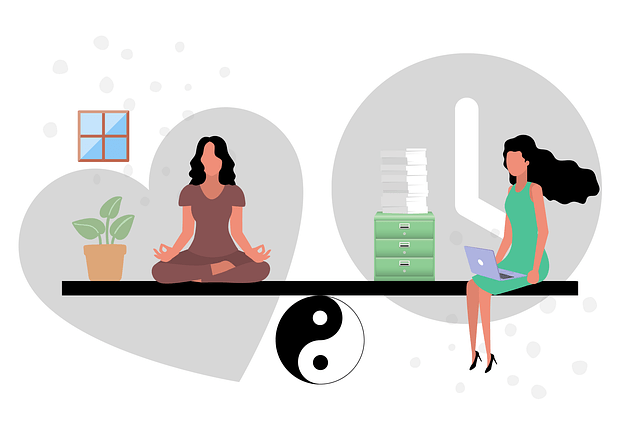
Many wish that the day was 36 hours long, finding more time for yourself is crucial!
In the fast-paced and demanding modern world we find ourselves in, it often feels like a luxury to dedicate time for self-care and personal well-being. Nonetheless, as seasoned and accomplished professional, mother and wife, I fully grasp the significance of carving out that essential time for ourselves. In this article, we will delve deep into ten practical and actionable tips that guarantee to assist you in reclaiming time for self-care. As it is important to prioritize your well-being, and discovering newfound inspiration in your everyday life. By adopting and implementing these invaluable strategies, you will not only amplify your overall well-being but also foster greater creativity and success in all your pursuits.
Organize your work or living space:
Taking the time to establish an organized and tidy atmosphere can greatly enhance your levels of motivation and creativity. Dedicate a few minutes every day to arranging and decluttering your work or living space. By eliminating physical chaos, not only will you create a visually pleasing environment, but you will also promote a state of mental clarity and concentration. It allows your mind to be free of distractions and allows you to fully focus on the task at hand, boosting your productivity and efficiency.
Over-commitment is never a good thing:
In our daily lives, one obstacle that often hampers our ability to find inspiration is over-commitment. When we try to cram too many tasks and responsibilities into our schedule, it results in stress, exhaustion, and a lack of time for self-reflection and creativity. To overcome this, it is crucial to prioritize our tasks and start with the most important ones. By giving our undivided attention to one task at a time, we can avoid the feeling of being overwhelmed and create a conducive environment for inspiration to thrive and flourish.
Don’t always be so eager to say “Yes”:
Learning to say no is crucial when it comes to taking back control of your time. This allows you to prioritize what truly matters to you. This simple yet powerful word allows you to establish boundaries and avoid over-commitment. By saying no to tasks or activities that don’t align with your priorities, you are not only respecting your own limitations but also creating space for personal well-being and pursuing activities that genuinely inspire you. It’s a way of honoring yourself and ensuring that your time and energy are reserved for the things that truly matter to you. Without the need to feel guilty or overwhelmed. So, embrace the art of saying no and take charge of your life.
Make a schedule & stick to it:
Organizing your schedule is vital in order to avoid overwhelming yourself and to make time for personal well-being. It is essential to plan your daily schedule with realistic deadlines and allocate specific time for self-care and personal activities. This way, you can effectively manage your day, ensuring that you have enough time for work as well as for recharging and taking care of yourself.
In-depth organization of your schedule is crucial for maintaining a balanced and fulfilling lifestyle. By carefully structuring your day, you can avoid over-commitment and create a manageable routine that allows for both work and self-care.
A To-Do List can be a vital tool:
Creating a to-do list is an incredibly effective method to bring order and structure to your daily life. This will greatly minimize your stress levels. It is a straightforward yet powerful tool that allows you to keep track of all the tasks you need to complete. At the beginning of each day, make it a habit to jot down all the things you must accomplish. Thus ensuring that you do not forget any important responsibilities. To further enhance its effectiveness, it is crucial to prioritize these tasks based on their significance. By breaking down your goals into smaller, manageable steps, you are more likely to stay focused and productive throughout the day. This approach not only assists in maintaining a clear and organized mindset but also declutters your thoughts, creating a clearer path to your goals.
Implement time-management techniques:
To optimize your productivity and achieve a well-rounded lifestyle, it is advantageous to embrace various time management techniques such as the renowned Pomodoro Technique or the practical approach of time blocking. These methodologies allow you to work in concentrated bursts, interspersed with purposeful breaks, fostering a healthy work-life balance. By effectively managing your time, you can create ample opportunities for personal leisure and rejuvenation, ultimately leading to enhanced well-being and overall satisfaction.
The Pomodoro Technique is a time management method developed by Francesco Cirillo. It involves breaking your work into focused intervals. Typically 25 minutes each, called “pomodoros,” followed by short breaks, with longer breaks taken after a certain number of completed pomodoros. This helps to improve productivity and maintain mental freshness.
Time blocking is a productivity technique where you schedule specific blocks of time for different tasks or activities, allowing for focused work and effective time management.
Delegate responsibilities when ever possible:
Delegation and outsourcing are essential practices to embrace in order to effectively manage your personal and professional life. It is important to acknowledge that you do not have to shoulder the burden of every task by yourself. Instead, find competent individuals who can assist you and entrust them with responsibilities. By doing so, you not only empower others but also free up precious time for self-care, pursuing your interests and hobbies, or simply taking a well-deserved break.
Even in your personal life, you can delegate tasks. It is of utmost importance to establish well-defined boundaries in order to safeguard your time and overall well-being. Whether it’s in your professional life, interpersonal relationships, or social interactions, openly expressing your needs and limitations is crucial. By setting clear boundaries, you gain protection against burnout and create the space you need to prioritize self-care without the weight of guilt or obligation.
Put into practice mindfulness and self-reflection:
Setting boundaries not only acts as a shield against exhaustion but also serves as a guiding principle to allocate dedicated time for yourself. To truly experience the benefits of mindfulness and self-reflection, it is essential to incorporate these practices into your everyday life. By integrating mindfulness into your daily routine, you can develop a greater sense of self-awareness and create moments of stillness amidst the chaos of everyday life. This comprehensive approach involves dedicating a few minutes each day to engage in activities such as meditation, deep breathing exercises, or journaling.
Dedicate time to your own self-care:
Engaging in daily meditation allows you to quiet your mind and redirect your focus on the present moment. By consciously observing your thoughts you allow yourself to connect to your innermost self. Make self-care a top priority by incorporating consistent and purposeful self-care rituals into your daily schedule. These rituals may encompass a range of activities that bring you joy and relaxation, such as indulging in a soothing bubble bath, immersing yourself in the serenity of nature during a leisurely walk, practicing revitalizing yoga poses, diving into a captivating book, or engaging in a beloved hobby that lights up your soul. By consciously setting aside dedicated time for self-care, you nourish your physical and emotional well-being, reinvigorate your mental faculties, and ignite a spark of inspiration that propels you forward in life.
Here is an example of someone employing some of the above strategies:
Mary, a writer, understands the importance of dedicating time to herself in order to unlock new and innovative ideas. She recognizes that starting each day with a clean and inspiring workspace sets the tone for her creative process. To efficiently manage her writing tasks, Mary diligently prioritizes them and plans her schedule in a realistic manner, avoiding taking too much time on each task. By consciously turning down non-essential activities, she carves out specific periods for self-care rituals such as morning walks and meditation. These practices enable Mary to establish a harmonious balance between her professional and personal life, fostering an environment where inspiration flourishes, and her creative spark thrives.
Conclusion:
It is crucial to recognize that making time for oneself is not a mere luxury, but rather a vital necessity for one’s personal well-being and a source of inspiration. By incorporating the ten practical and effective tips provided in this article, individuals can proactively take charge of their time management. These tips include creating an organized environment that promotes productivity, prioritizing tasks based on importance and urgency, learning to say no when necessary, efficiently organizing and optimizing one’s schedule, creating a comprehensive to-do list, embracing effective time management techniques, delegating and outsourcing tasks when appropriate, setting boundaries to maintain a healthy work-life balance, practicing mindfulness and engaging in self-reflection, and lastly, prioritizing self-care rituals. By implementing these strategies, individuals can regain control over their time, thereby unlocking their creative potential and leading more harmonious and fulfilling lives. It’s important to remember that prioritizing self-care and personal well-being is not a selfish act but rather a wise investment towards achieving overall success and happiness.









